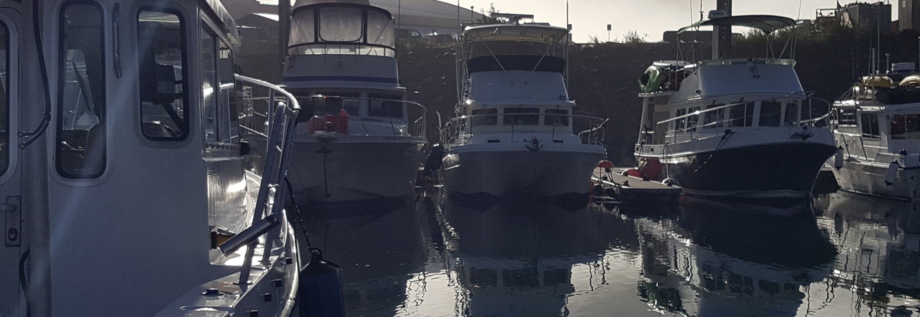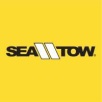Pollution Prevention
Pollution Prevention Practices
- REPAIRS AND SERVICE (to hull and engine: painting, cleaning washing, sanding, scraping, etc.)
- Work on hulls and engines only in designated areas or use portable containment enclosures with approval of marina management.
- Use tarps, filter cloths and vacuums to collect solid waste produced by cleaning and repair operations-especially boat bottom cleaning, sanding, scraping, and painting.
- Conduct all spray painting within an enclosed booth or under tarps.
- Use non-toxic, biodegradable solvents.
- Capture debris from boat washing and use only minimal amounts of phosphate, non-toxic, and biodegradable cleaners.
- Use drip pans for any oil transfers, grease operations, and when servicing I/Os and outboard motors.
- Obtain management approval before commencing and repair which will open the hull. Clean and pump bilges free of and contaminated materials before and after repairs which will open the hull.
- Use spill proof oil change equipment.
- Sand blasting/ Soda blasting/ Turbo washing is permitted between June 15th - Sept. 15th only. Blasting must be approved by Management 2 weeks in advance.
- VESSEL MAINTENANCE WASTE
- Non-toxic residue of sanding, scraping, and grinding: bag and dispose of in regular trash.
- Toxic and non-environmentally safe solvents and cleaning liquids: seek specific directions from the marina management or dispose of with licensed agency.
- FUEL OPERATIONS
- Install fuel/air separator on fuel tank vent line(s) to prevent overflow of fuel through vent.
- Keep petroleum absorbent pad(s) readily available to catch or contain minor spills and drips during fueling.
- No transfer of fuel is permitted from any portable containers to fixed tanks. Fueling may only take place at the Fuel Dock.
- WASTE OIL AND FUEL
- Recycle used oil and antifreeze. (EVOS Building at City Harbor)
- Add a stabilizer to fuel tank in the fall or an octane booster to stale fuel in the spring. Use the fuel to bring it to a household hazardous waste collection site.
- Absorbent materials soaked with oil or diesel: drain liquid and dispose of in used oil recycling container; double bag absorbent material in plastic and dispose in regular trash receptacle.
- Absorbent materials soaked with gasoline (flammable): air dry and reuse.
- Bioremediating absorbent products: dispose in regular trash as long as no liquid is dripping. Because the microbes need oxygen to function, do not seal in plastic.
- Oil filters: drain and recycle the oil; recycle the filter or double bag and put in regular trash.
- ONBOARD PRACTICES
- Maintain oil absorbent pads in bilge. Inspect no less than annually.
- Do not discharge bilge water if there is a sheen to it.
- Use only low-toxic antifreeze (propylene glycol). Recycle used antifreeze (even low-toxic antifreeze will contain heavy metals once it has been used).
- SEWAGE HANDLING
- Never discharge raw sewage within Alaska waters.
- If you have and installed toilet, you must have an approved Marine Sanitation Device (MSD).
- Do not discharge type I or type II marine sanitation devices within marina basin.
- Use marina restroom facilities when at slip.
- Do not empty port-a-pots overboard; use marina dump facility. Do no empty port-a-pots in the restrooms.
- Do not discharge holding tanks overboard; use pump out facility.
- If you must use a holding tank additive, use an enzyme-based product. Avoid products that contain quaternary ammonium compounds (QACs), formaldehyde, formalin, phenal derivatives, alcohol bases, chlorine bleach.
- Liveaboards, place a dye tablet in holding tank after each pump out. The dye will make illegal discharges clearly visible.
- ORGANIC WASTE
- Cleaning of fish is prohibited
- Walk pets in specified areas and dispose of their waste, double-bagged, in the dumpster.
- SOLID WASTE
- Recycle. Ask office for recycling instructions.
- Place trash in covered trash receptacles; replace covers




